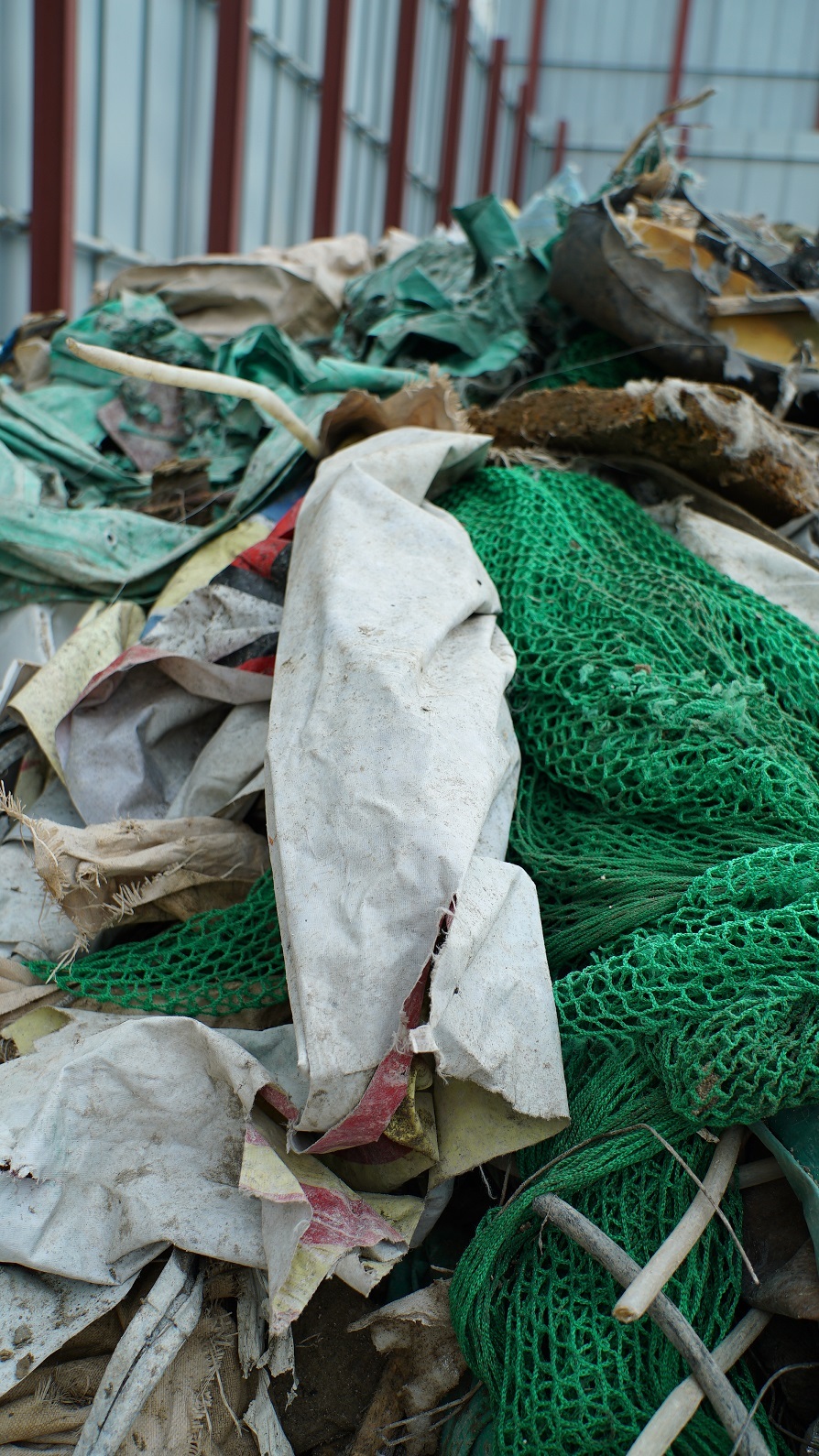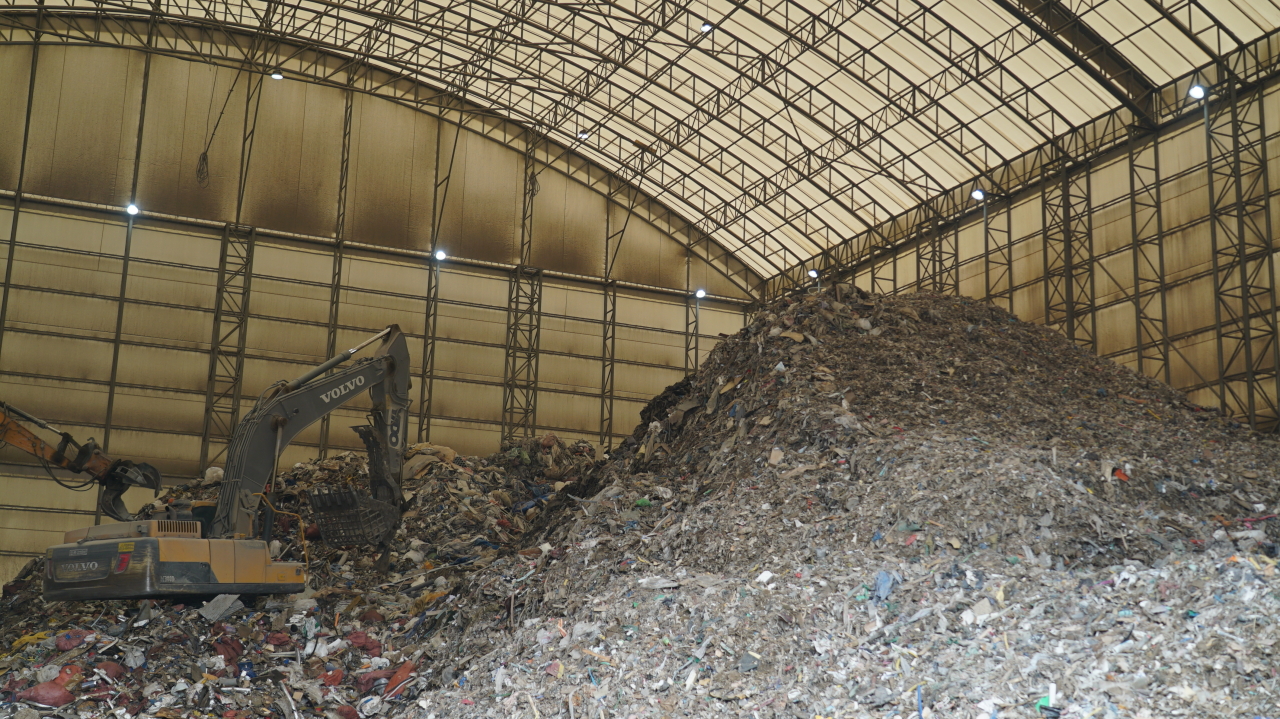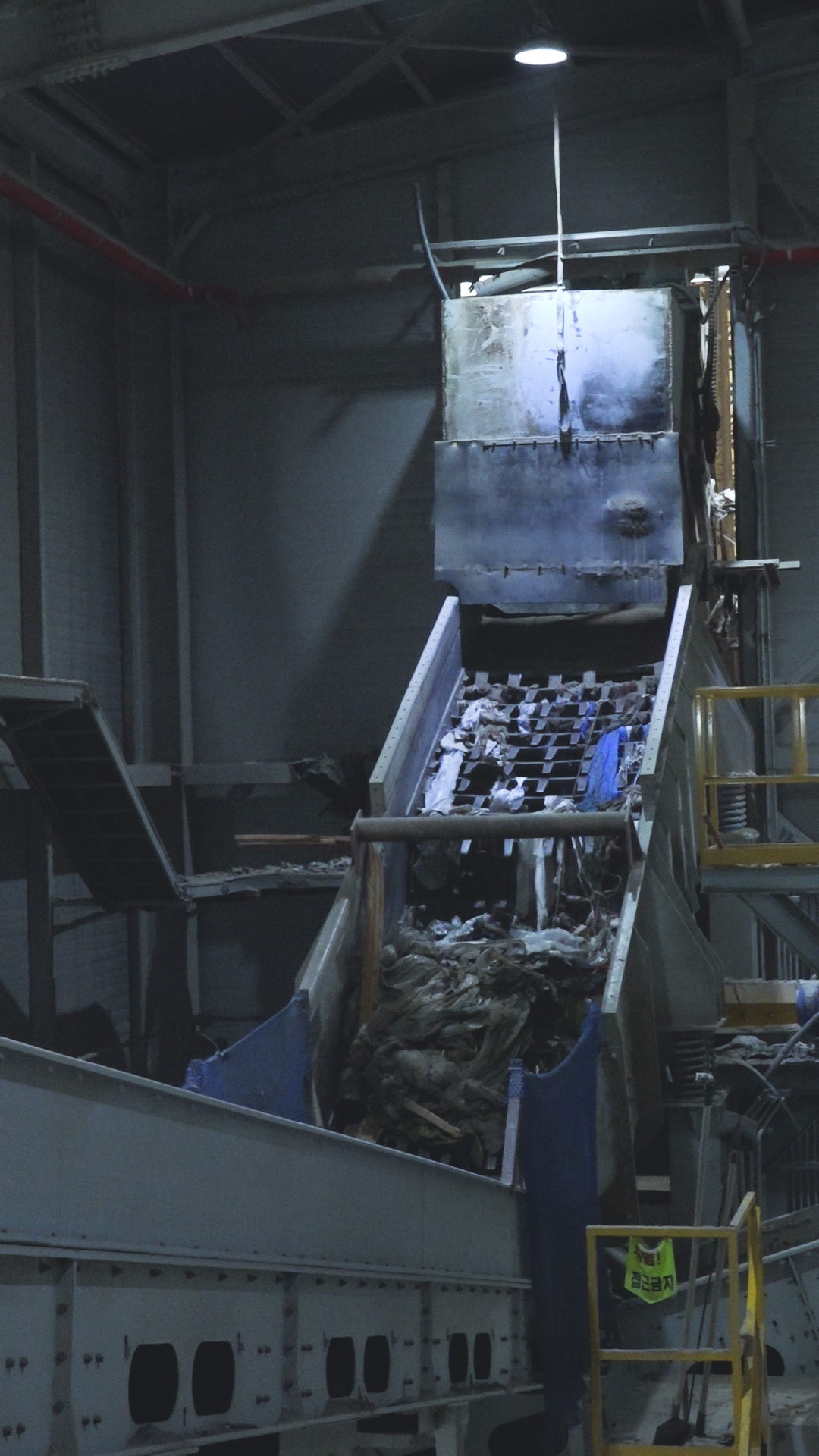 |
Unsorted construction waste at Yido, a South Korean waste management company based in Seoul. (An Jeong-yeon, Lee Eun-soo/The Korea Herald) |
INCHEON -- Dust flew through the air as three yellow forklifts busily scooped up a huge chunk of torn wallpaper, green plastic safety nets and steel rebar from a mountain of construction waste.
The ground was covered in mud as sprinklers misted the area to suppress the dust. Obviously wearing white shoes was a mistake.
On Aug. 26, The Korea Herald visited an automatic construction waste recycling facility located in Incheon.
 |
Forklifts pick up construction waste (An Jeong-yeon, Lee Eun-soo/The Korea Herald) |
Sa Gong-myeong, a director at Yido, a South Korean waste management firm running the facility, said construction waste, notoriously difficult to sort, typically goes straight to landfill.
“About 98.9 percent of construction waste, which is mostly made up of large pieces of cement and concrete debris, is recycled,” he says. ”The remaining 1.1 percent is the tricky part, as it is all kinds of waste entangled together.”
Recycling this 1.1 percent is critical, Sa explained, as it is the main culprit taking up space in landfills. Last year, Sudokwon Landfill in Incheon buried 2.99 million tons of waste, 56.1 percent of which was unrecycled construction waste. At this pace, the Incheon landfill will max out in 2025.
To address the issue, Yido says it has a plan to get rid of the unrecycled construction waste.
 |
Yido's recycling facility (An Jeong-yeon, Lee Eun-soo/The Korea Herald) |
There are three main steps. First, a shaking machine divides waste by size and shape, forcing cement and concrete debris to fall to the back of the machine for recycling as construction materials. Then, the filtered waste slides under a giant magnetic drum, which removes the metals. Finally, a wind sifter separates out the light plastic.
“The vinyl is recycled as a feedstock to burn together with oil to power cement factories,” said Kim Su, deputy general manager at Yido, while walking around the facility, which can process 7,200 tons of construction waste a day.
By transforming the costly, labor-intensive construction waste recycling process into a profitable, automated one, Yido is challenging the nation’s greatest waste problem -- garbage mountains.
 |
A garbage mountain in Uisong, North Gyeongsang Province (Uiseong) |
In order to throw away construction waste weighing 5 tons or more in Korea, it must be reported to Allbaro, the nation’s online waste disposal verification system. Through Allbaro, authorities are able to track the waste from pick up until it is properly disposed of or recycled.
However, there is a loophole -- construction waste weighing less than 5 tons doesn’t have to be reported. This clause helps small construction companies dispose of their waste flexibly, but it has also given birth to frequent scams in recent years.
Scammers first lease cheap land in rural areas and set up “storage centers.” These storage centers deposit construction waste at cheaper rates than licensed recycling centers, which typically charge 250,000 won ($215) per ton.
Knowing that construction waste weighing less than 5 tons cannot be traced, some construction companies intentionally divide up their waste and dump it at the storage centers to cut costs. The land eventually turns into a giant garbage mountain.
“When the lease period ends, the scammers take off and go into hiding, leaving land owners with a massive mound of waste on their properties. Funny thing is, the owners are legally held accountable to clean up the mess. Even if the scammers are arrested, they simply say, ‘Eat me,’ and refuse to cough up the money,” Sa said.
As of December, there were a total of 91 garbage mountains all across the country making up 273,000 tons of abandoned waste. The authorities don’t know exactly how many more of these trash piles there are. And as it stands, even if they find one, they can’t do anything about it.
“Storage centers aren’t categorized as recycling centers, so construction waste disposal laws don’t apply to them. Storage centers are legally required to install fences, and that’s it. The authorities lack the legal grounds to take action against these massive garbage piles at storage centers,” Sa said.
By Kim Byung-wook (
kbw@heraldcorp.com)











![[Today’s K-pop] Blackpink’s Jennie, Lisa invited to Coachella as solo acts](http://res.heraldm.com/phpwas/restmb_idxmake.php?idx=644&simg=/content/image/2024/11/21/20241121050099_0.jpg)